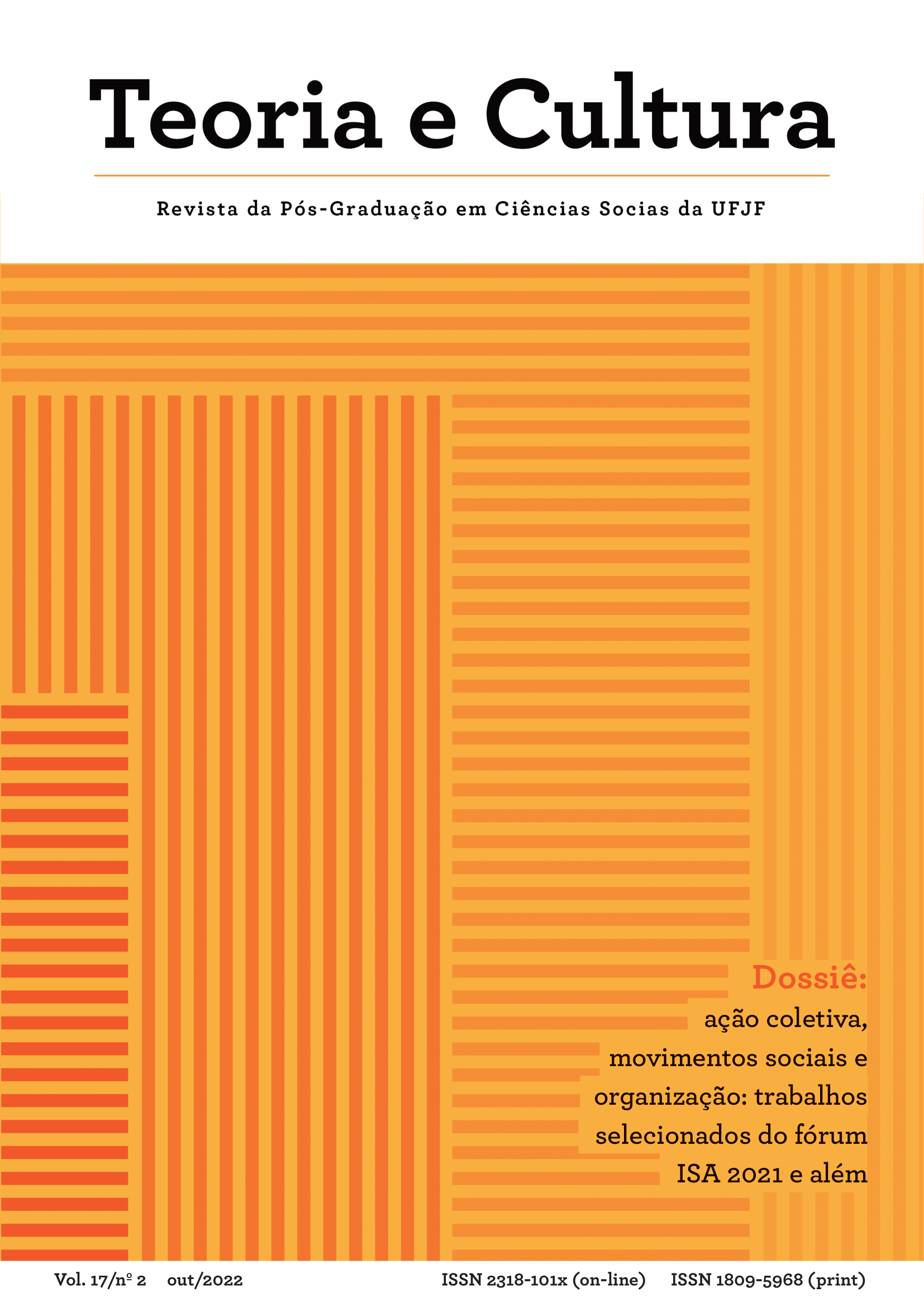Redes canábicas e usos medicinais de maconha:
associativismo como parte do processo terapêutico
DOI:
https://doi.org/10.34019/2318-101X.2022.v17.38488Resumo
O presente artigo tem como objetivo construir um panorama sobre como se mobilizam os atores sociais em torno do acesso à maconha para fins medicinais no Brasil, especialmente no que se refere às ações coletivas promovidas entre os anos de 2014 e 2019 por meio do associativismo canábico. A partir de uma pesquisa etnográfica realizada junto a associações canábicas brasileiras, e pela análise documental e de audiências públicas, compreendeu-se que o ativismo em torno do tema tem resultado no maior acesso a tal tratamento, por meio da desobediência civil e da judicialização da saúde. Como o conhecimento necessário para realizar o tratamento com cannabis não tem sido produzido pelas instituições médicas ou institutos de pesquisa, para acessá-los é necessário engajar-se em coletivos ou associações canábicas. Nesse sentido, o engajamento promove o maior acesso à saúde, uma vez que tais movimentos têm resultado em possibilidades para tal tratamento. Além disso, a credibilidade e legitimidade alcançada pelas associações canábicas tem potencial para ampliar a democratização do debate sobre o tema da cannabis, uma vez que aumentam a participação social nos processos de tomada de decisão, e demandam meios democráticos de acesso.








